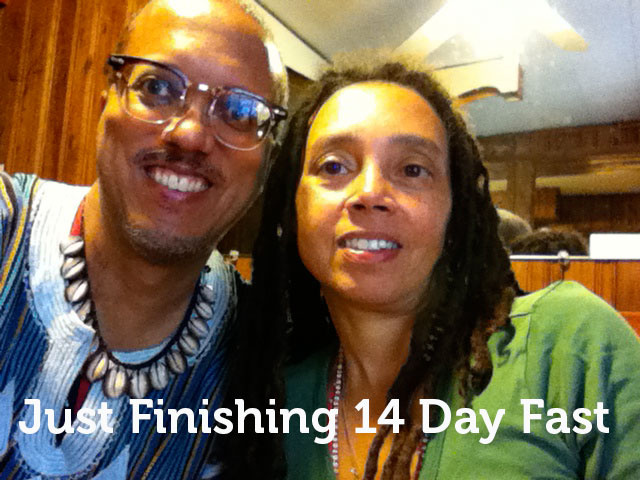This is a repost of an article by Dr. Opare. It’s also an excerpt from our Optimum Fast E-Book.
One of the most common questions people we supervise fasting have is; how long am I going to be fasting? When Do I break the fast?
It is relatively easy to stop eating for a while it is far more challenging to properly break the fast and move into healthier patterns of food consumption and life habits. The timing of breaking the fast is crucial.
Despite my experience personally fasting and supervising fasts, I cannot accurately predict for clients when is the proper time to break the past. Most of my clients err on the side of breaking the fast too soon. Peer pressure and family telling them they are going to die or damage themselves if they keep this up often lead to prematurely breaking the fast.
Preconceived notions of how long the fast will take are often reasons the fast is broken too soon. Business or life events will sometime intervene.
Fear and boredom are other reasons. Feeling safe and clear on one’s reason for fasting is essential for emotional detoxification to occur. It is important to be clear on your purpose for fasting and undertake a fasting regimen that is well designed and physiologically correct for your body. If you suffer from serious or chronic medical conditions and or take medications, proper supervision by a health professional experienced in leading fasts is key.
Fasting is a process of detoxification occurring on physical, mental, emotional and spiritual levels. Sometimes because the toxicity may be deep seeded or long-standing this process may be prolonged. Success in the fast is contingent on completing the detoxification process before breaking the fast. Breaking the fast too early before completely riding oneself of the addictive pattern (diet, drugs, etc.) makes resumption of that pattern full-bore much more likely.
The fast is a transformative tool. When one is undertaking life transformation three things are important to ensure success.
- First is clarity of what the problem was/is. This involves honesty with oneself and understanding of the deleterious effects of that old behavior.
- Next is awareness and clarity of how you now feel once you have removed the problem from your life.
- Third is clarity of purpose in moving forward. I recommend that the fast not be broken until the person has made solemn spiritual, emotional and mental commitments to the new life they desire. I find it best to write these down and share the list with those in their lives whose cooperation is needed to ensure success.
Changing how you eat or ridding yourself of addictions are life changes. Life changes require logistical issues be addressed in such a way for the changes to work. For example; if you are committing to a living foods lifestyle you must have your kitchen outfitted to prepare the foods. How are you going to handle getting the fresh food you need? How are you going to handle holidays with the family? Travel? Work exigencies?
Cleaning your living environment of the old habits is also important. Get rid of the old foods and condiments you used to make them. Give away your paraphernalia you used to take the drugs. Deep clean your home including upholstery, drapes, carpets and clothes to rid it them the grease or smoke smells are a couple of the things we recommend.
Once you have prepared yourself for your future life it is time to pay close attention to your body to tell you when you have finished your “internal house-cleaning”
Next week I’ll share the signs of when to break the fast.
Nana Kwaku Opare, MD, MPH, CA

If a fast or detox is in your future, you owe it to yourself to experience the power of the Optimum Fast.

